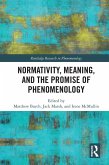It is evident from recent political campaigns, such as that of Donald Trump, that the deployment of attention is crucial for political outcomes. Indeed, Trump's presidency came about in part due to realities that were produced by the media themselves, which required in turn the engagement of public attention. The implication is that the instability and capriciousness that is often associated with attention can be an important influence on the outcomes that are so produced. Drawing on the thought of Martin Heidegger, Lawrence Berger puts forward a new conception of attention as human presence, showing how its state determines the efficacy of public spaces in articulating and achieving visions of the common good. As politicians seek to amass power by capturing attention, citizens can engage in disciplines of attention such as mindfulness in producing a public power that is more appropriately oriented to the welfare of all. Berger argues that the practice of mindfulness can enable enhanced ontological bonds to form between individuals, which can be the basis for more stable and effective political realities. Such bonds are not given structures, but are rather contingent upon the state of attention, which comes about holistically by way of a hermeneutical circle of attention, language, and bodily understanding. This book is a valuable resource for scholars and students of philosophy of mind, political philosophy, phenomenology, and cognitive science.
Bitte wählen Sie Ihr Anliegen aus.
Rechnungen
Retourenschein anfordern
Bestellstatus
Storno









